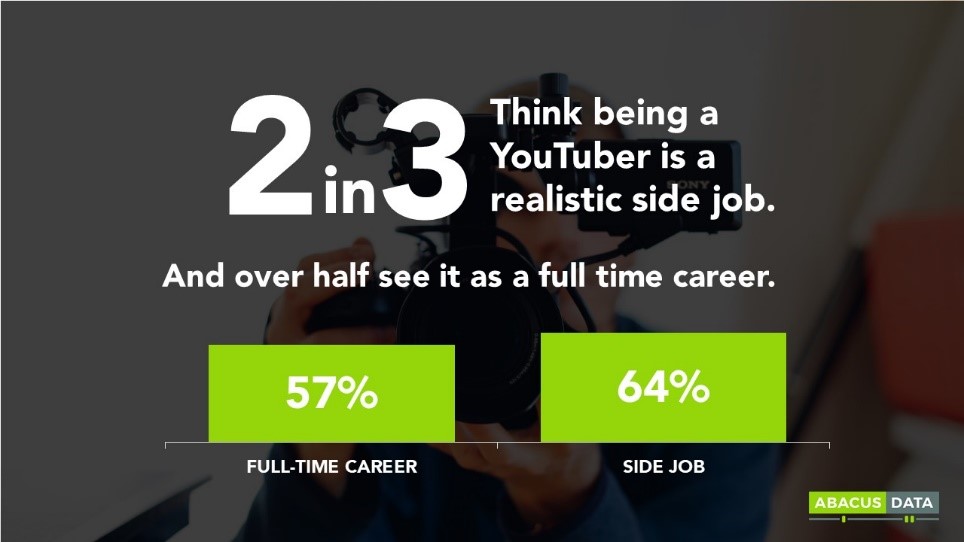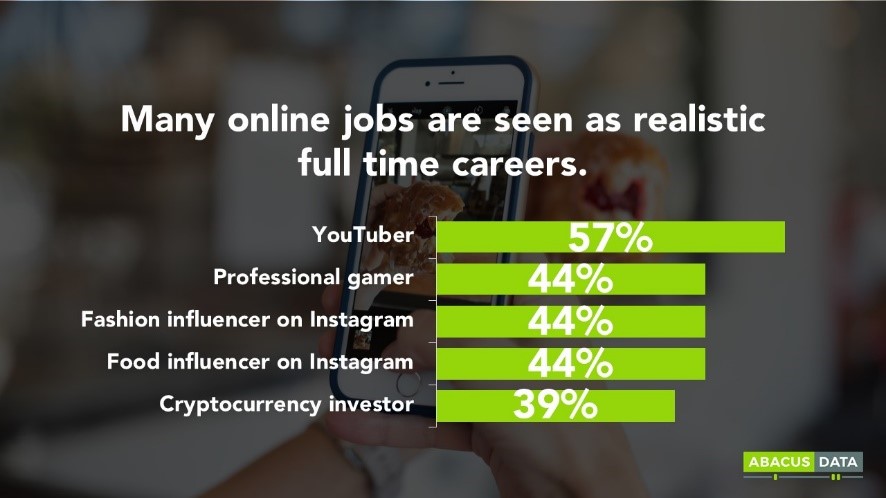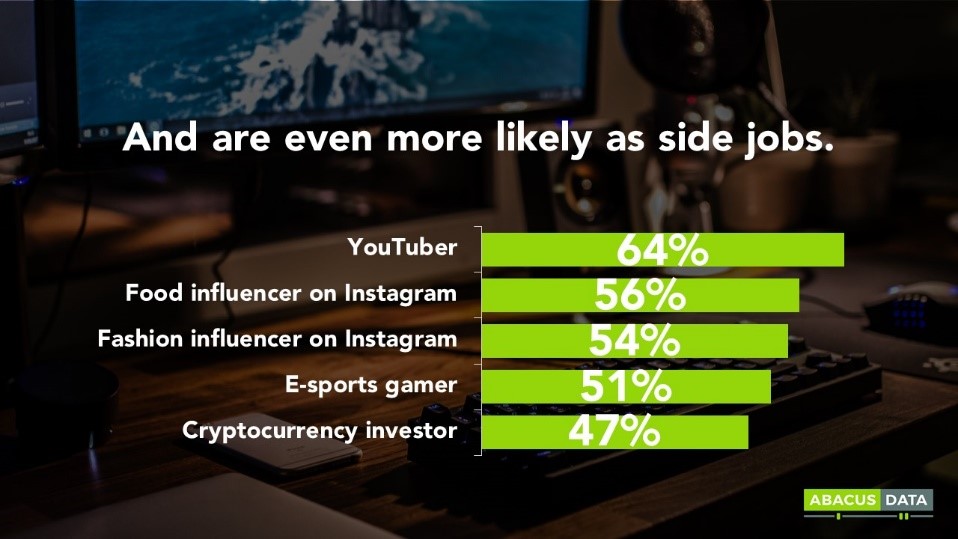The Millennial Delusion
May 3, 2019
In June of 2018, a study was released saying 54% of millennials expect to be a millionaire someday. For a generation that is riddled with student debt, heavily relies on their parent’s basements well into adulthood, and face increasing tuition rates and housing costs, that’s a lot of optimism. Many news outlets say this finding proves millennials are “delusional” about their future prospects. But where does this delusion come from? Our research and insights here at Abacus Data has unveiled a couple of possible answers as to why millennials see a six-figure future.

-
The growth and promise of careers in digital industries
One of the biggest and most visible new career paths in the online world is being a YouTuber. Earlier this month we shared an article about the business of partnerships between YouTube stars and billion-dollar businesses. The money in the industry is real, and the premise of being a YouTube sensation seems easy, with little to no entry costs to the industry. Our data shows this assumption to be more or less true. In our study of millennials, we found two-thirds see YouTube as a realistic side job.
The same low-entry cost applies to many other up and coming careers that rely on the digital world. Many jobs that are founded on online business models did not exist ten years ago and are now seen as very viable careers. Nearly half of Millennials see cryptocurrency investors, Instagram influencers, professional gaming, and YouTube as realistic full-time careers and side jobs. Whether it is easy to actually get rich in one of these careers is a completely different story, but what matters is that millennials believe there are an increased number of ways to make millions without relying on a traditional ladder-climbing organization.
Let’s not forget that these possible careers are legitimized by the many success stories of their millennial peers. At 20 years old, Kylie Jenner’s net worth is close to $1 billion. And then there is Mark Zuckerberg who created a company so successful (worth around $536 billion) that it makes Kylie’s net worth look like nothing. These success stories motivate young millennials to dream big, and be optimistic about their future, even if in reality these success stories are few and far between and this optimism is misplaced.

-
The rise of the ‘side hustle’
What’s a more popular millennials trend than avocado toast? Side hustles. The Millennials are entrepreneurial and use side hustles to gain an additional income outside their main revenue stream (to pay for their avocado toast). According to a study by Bankrate, 28% of millennials are pursuing a side hustle as a way to bring in additional income. And according to our data, there are many possible streams to gain additional income. Two in three believe being a YouTuber as good side jobs, but more surprisingly, over half think food and fashion influencers on Instagram are likely side hustles. Perhaps the seemingly increasing number of ways to make money, and ease of creating a second or third income stream also contributes to the optimism of wannabe millionaire millennials.

-
Increased education
Though it may not contribute to the actual number of successful people, it’s likely that the increase in education also contributes to the optimism among millennials. According to Universities Canada, there has been a 209% increase in full-time enrollment in universities since 1980. Millennials are dutifully checking the boxes necessary to achieve success, as per the checklist used by their parents in the 80s.
Linkages between optimism and education have been found in research. While the study is not millennial specific, research from the University of Michigan’s Survey of Consumers linked higher education to greater optimism in the year ahead, and in the next five years. This last point is complex, and could very likely be unpacked further, but we think this is a very probable cause of the optimism of millennials.
While it remains to be seen whether Millennials will achieve the levels of success they dream of, there are some very strong arguments for why they may feel so optimistic about their future prospects. The number of career possibilities is growing, pursuing more than one income stream seems as easy as setting up a social media account, and millennials are dutifully educating themselves at rates double their parent’s generation. Whether or not these reasons will actually lead to millennial millionaires is an entirely different post!
At Abacus we strive to understand the nuances of generational change and how it impacts you and your business. The Canadian Millennials Report is the largest syndicated study of millennials in Canada. We survey 2,000 millennials twice a year on a range of topics including politics, social values, and consumer trends. If you are interested in learning more about this generation, reach out to us and we would be happy to connect.



